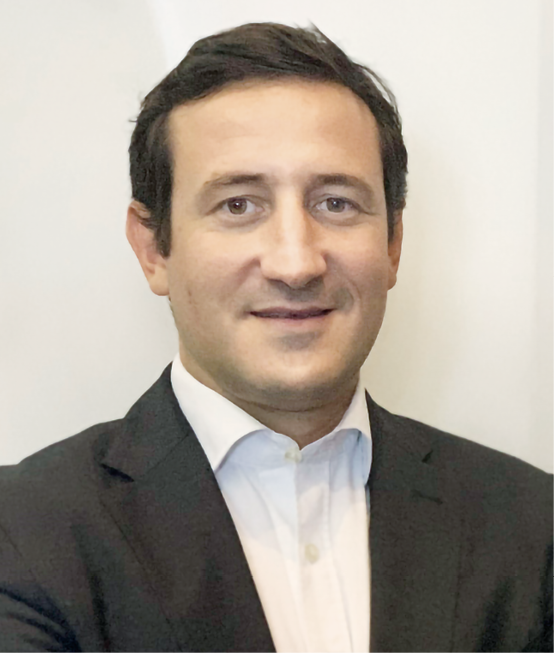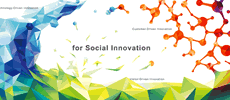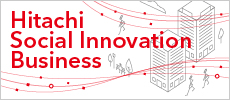COVER STORY:TRENDSChallenge of the Global Lighthouse Network to be Accelerated toward the Resolution of Social Issues
 Francisco Betti
Francisco Betti
Head of Shaping the Future of Advanced Manufacturing and Production,
World Economic Forum
Joined the World Economic Forum in May 2015. Francisco is an international development professional and heads the Platform for Shaping the Future of Advanced Manufacturing and Production, which is one of the 17 global initiatives the World Economic Forum is currently driving. The Platform is helping global leaders from business, government, academia, and civil society anticipate the impact of Fourth Industrial Revolution technologies on manufacturing and supply systems. Leaders engaged in the Platform set and drive the global manufacturing agenda and incubate new partnerships to ensure a more productive, sustainable, and inclusive future of production. Prior to joining the World Economic Forum, Francisco worked for PricewaterhouseCoopers SA in Geneva, Switzerland, primarily on management consulting projects with international organizations.
A global community of leading companies, including Hitachi, have been successfully scaling the deployment of Fourth Industrial Revolution technologies to drive operational and business impact. Their digital journeys began with the transformation of factories and other facilities, and has been then propelled to entire value chains and across difference company functions, beyond manufacturing.
Since 2018, 69 companies have been identified and recognized by an independent expert panel as front-runners in digital transformation (DX). They have all succeeded in scaling Fourth Industrial Revolution technology adoption beyond the pilot phase and were designated as “Lighthouses” — joining the World Economic Forum’s Global Lighthouse Network. They are all showing leadership to transform factories, value chains, and business models, and have embarked on a joint learning journey, partnering on collaborative projects, developing insights, and incubating new partnerships.
Lighthouses have three main opportunities to further strengthen its impact and footprint.
Firstly, to achieve carbon-neutral manufacturing by 2025 and help build sustainable production systems. Manufacturing accounts for 54% of the world’s energy consumption and is responsible for 22% of carbon dioxide (CO2) emissions globally. While industry leaders recognize a need to alter this status quo, they struggle to define actions with a clear business case for investments that reduce their environmental footprint. However, some Lighthouses are already leading the way on the environmental front. Recent advances in manufacturing that combine technological innovations with emergent business models provide an opportunity for companies to build a carbon-neutral manufacturing ecosystem while driving competitiveness and growth.
Secondly, to enable technology diffusion and adoption across entire production networks, including small- and medium-sized enterprises (SMEs). And this to strengthen resilience across value chains. The full benefits of the Fourth Industrial Revolution in manufacturing can be only realized if complete value chains and production systems are transformed, by taking SMEs on board. Lighthouses need to exercise responsible leadership by actively supporting the diffusion of Fourth Industrial Revolution technologies through their entire production networks, which include suppliers of all sizes. This will not only lead to improved overall results and return on investment in technologies, but will also ensure that knowledge is spread more equally to accelerate innovation, and help avoid disruptions in crisis caused by natural disasters or cyber-attacks.
Thirdly, to invest in capability-building and lifelong learning, and to help upgrade regulations, policies, and industrial development strategies. Public and private organizations, academia, and civil society must work together to help the workforce transition towards the future of manufacturing. This will require retooling the education system, investing in large-scale reskilling and upskilling efforts, and developing a learning environment favorable to lifelong learning that enables continuous adaptation. This will help workers increase their mobility opportunities and help companies fill the existing skills gap, which has been recognized by Lighthouses as a key challenge.
In addition, governments can also play an active role in supporting and accelerating the ongoing transition by putting in place new strategies, initiatives, and programmes aimed at ensuring the diffusion and adoption of technologies. Some countries have already invested in national public-private platforms to raise awareness of the Fourth Industrial Revolution in manufacturing, support the development of new use cases, and enable collaboration between research institutions and companies.
The World Economic Forum was delighted to recognize Hitachi Omika Works, in Japan as Lighthouse back in January 2020. Through a unique selection of use cases, the factory has achieved significant results. It has reduced lead time of core products by 50% without impacting quality. Key solutions adopted include digitally enabled operator performance management, digitally enabled equipment performance management, Internet of Things (IoT) infrastructure for control systems, digital twin to simulate customer systems, and energy management systems, which are leveraging a range of industrial IoT technologies and data analytics in engineering, production, and maintenance operations.
By leveraging technology to deliver impact beyond productivity — specifically in terms of sustainability, support to SMEs and workforce transformation, Lighthouses have the opportunity to contribute towards building a more sustainable and inclusive future of production. We expect Hitachi Omika Works, to continue making progress on its DX journey and contribute to these broader environmental and societal goals.



